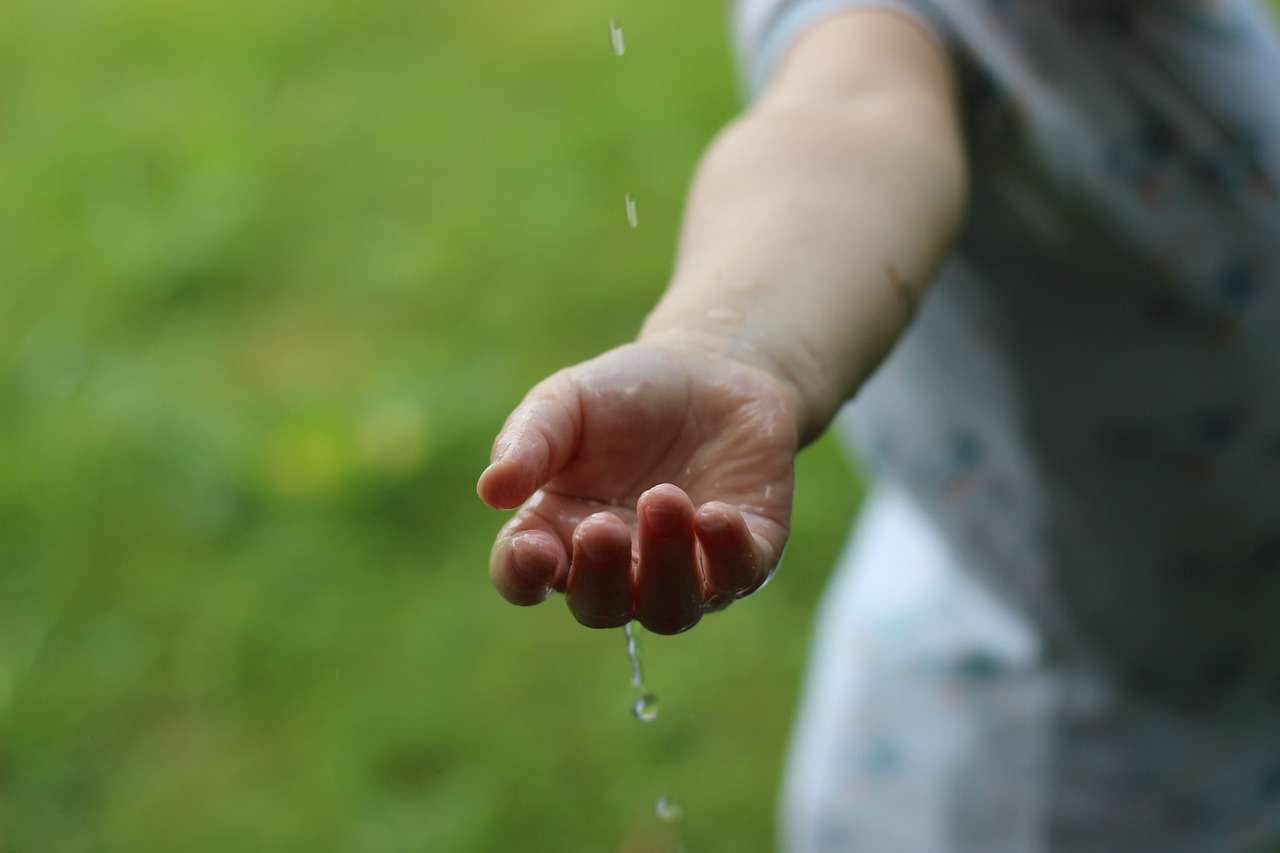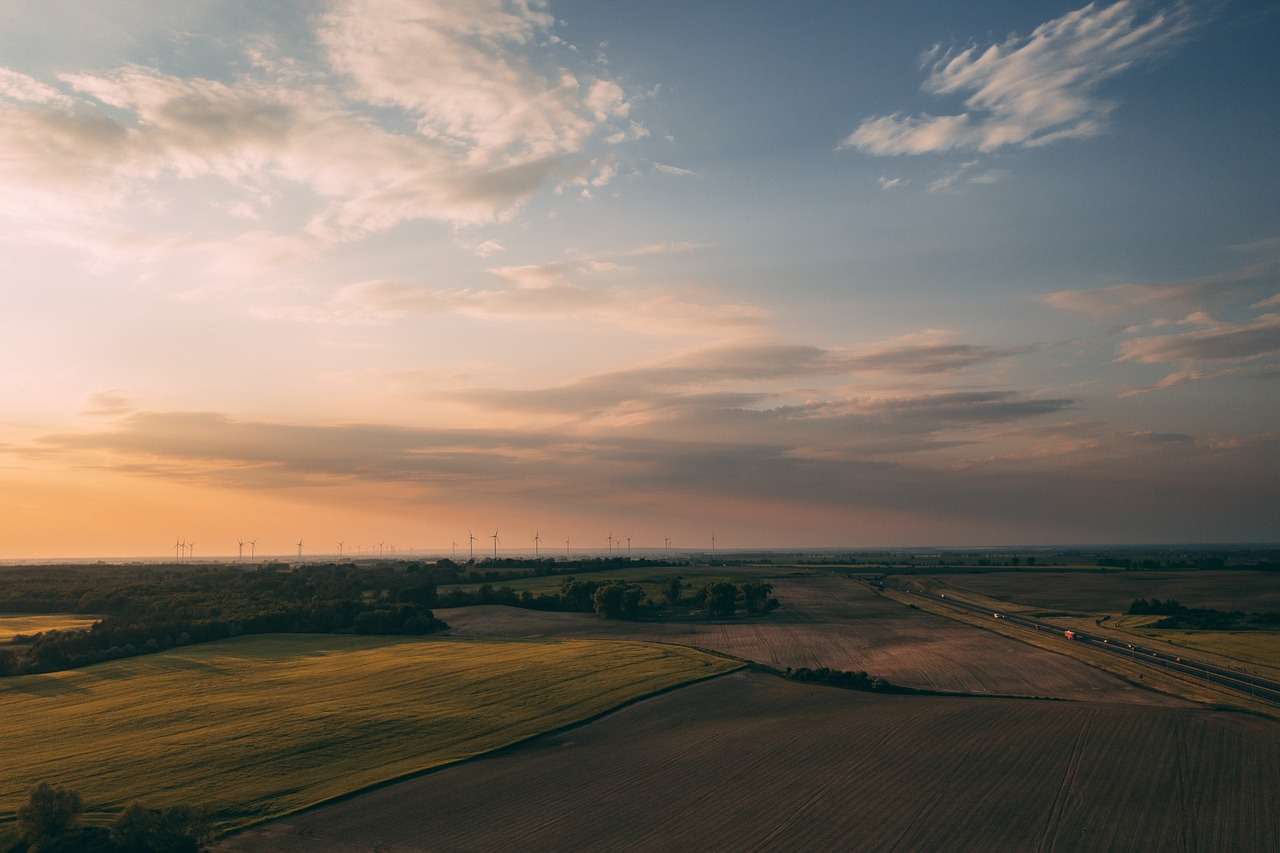I’ve always wondered if off-grid living is truly the more sustainable option. In a world where we are constantly striving to reduce our carbon footprint and live in harmony with the environment, the idea of disconnecting from the conventional power grid and relying on renewable sources sounds appealing. But is it really as sustainable as it seems? In this article, we’ll explore the pros and cons of off-grid living and its overall impact on the environment.

Environmental Impact
Reduced Carbon Footprint
Off-grid living offers the opportunity to significantly reduce our carbon footprint. By relying on renewable energy sources and minimizing the use of fossil fuels, off-grid homes produce little to no greenhouse gas emissions. Traditional grid-connected homes heavily rely on electricity generated from fossil fuels, contributing to air pollution and climate change. By going off-grid, I can contribute to reducing carbon emissions and mitigating the negative impacts of climate change.
Conservation of Resources
Living off-grid promotes the conservation of resources. When we rely on renewable energy sources such as solar power, wind power, or hydroelectric power, we minimize the extraction and consumption of finite resources like coal, oil, and natural gas. Additionally, off-grid living encourages the efficient use of resources such as water and materials. By being mindful of our resource consumption, we can minimize waste and preserve the Earth’s valuable resources for future generations.
Minimal Energy Loss
One of the advantages of off-grid living is that it reduces energy loss during transmission. In a traditional grid-connected home, electricity is transmitted over long distances from power plants, resulting in energy losses. In off-grid systems, the energy generated is used locally, reducing the losses that occur during transportation. This means that the energy I produce through renewable sources is maximized, making my overall energy consumption more efficient and sustainable.
Reduced Water Usage
Off-grid living encourages reduced water usage through various practices and technologies. Water conservation measures such as rainwater harvesting, greywater recycling, and low-flow plumbing fixtures can significantly reduce water consumption. Additionally, by utilizing passive design techniques in sustainable building practices, we can minimize the need for energy-intensive water heating and cooling systems. By reducing my water usage, I am conserving this precious resource and minimizing the strain on local water supplies.
Energy Sources
Renewable Energy Options
When it comes to off-grid living, the primary focus is on harnessing energy from renewable sources. Renewable energy options are abundant and diverse, providing sustainable alternatives to fossil fuel-based electricity. By adopting renewable energy sources for my off-grid home, I can significantly decrease my reliance on conventional energy sources and contribute to a greener world.
Solar Power
Solar power is one of the most popular and accessible renewable energy sources for off-grid living. By installing solar panels on my property, I can harness the abundant energy from the sun and convert it into electricity. Solar power systems are silent, require minimal maintenance, and have a long lifespan. With advancements in technology, solar panels have become more efficient and affordable, making them a viable option for off-grid living.
Wind Power
For areas with consistent and strong winds, wind power can be a valuable source of renewable energy. Small-scale wind turbines can be installed to generate electricity, providing a consistent power supply even when the sun is not shining. However, it is crucial to consider factors such as wind speed, noise levels, and local regulations before investing in a wind power system.
Hydroelectric Power
If your property has access to a stream or a river with a significant flow, harnessing hydroelectric power can be an option. Small-scale hydroelectric systems can generate a reliable and constant supply of electricity by utilizing the force of flowing water. However, it is essential to consider the environmental impacts of diverting water and the potential effects on local aquatic ecosystems.

Self-Reliance
Reduced Dependency on Utilities
One of the key benefits of off-grid living is the reduced dependency on traditional utilities. By generating my own electricity, collecting and treating my water, and managing waste on-site, I become less reliant on external service providers. This self-sufficiency allows me to have greater control over my resources and reduces my vulnerability to utility disruptions or price fluctuations.
Greater Control over Resources
Living off-grid provides me with greater control over the resources I consume. By generating my electricity, I can monitor and manage my energy usage more closely. Similarly, by collecting and treating my water, I am aware of the quality and quantity of water available to me. This control empowers me to make conscious decisions about resource usage and encourages a more sustainable lifestyle.
Increased Resilience
Off-grid living enhances my resilience to external factors such as power outages or water supply interruptions. In the event of a natural disaster or infrastructure failures, I am not entirely dependent on utility services for my basic needs. By having my own renewable energy systems, water collection methods, and waste management practices, I can ensure a more secure and self-reliant lifestyle.
Less Vulnerability to Disruptions
Living off-grid reduces my vulnerability to disruptions in the larger energy and water supply systems. When grid-connected homes experience power outages, off-grid homes can continue to function normally since they have their own renewable energy sources. In times of drought or water scarcity, off-grid homes with efficient water management systems are not as heavily impacted. This decreased vulnerability to disruptions provides peace of mind and allows for a more sustainable and stable way of life.
Sustainable Building Practices
Use of Natural and Recycled Materials
Sustainable building practices play a vital role in off-grid living. By using natural and recycled materials in construction, we can minimize the environmental impact associated with extracting and manufacturing building materials. Utilizing materials such as reclaimed wood, straw bales, or recycled concrete reduces waste, energy consumption, and carbon emissions. Additionally, natural materials offer excellent insulation properties and contribute to a healthier indoor environment.
Passive Heating and Cooling Systems
Passive heating and cooling systems are a cornerstone of sustainable building design. By utilizing the natural elements such as the sun, wind, and shade, off-grid homes can maintain comfortable temperatures without relying on energy-intensive heating and cooling systems. Proper orientation, insulation, shading, and ventilation design can greatly reduce the need for artificial climate control, leading to significant energy savings.
Insulation and Energy-Efficient Design
Insulation and energy-efficient design are essential components of sustainable off-grid living. Well-insulated homes minimize heat loss in winter and heat gain in summer, reducing the need for excessive heating or cooling. Energy-efficient design principles, such as the use of energy-efficient appliances, LED lighting, and smart home technologies, further optimize energy consumption. By investing in superior insulation and energy-efficient design, I can reduce my energy demands and enhance the sustainability of my off-grid home.
Water Conservation Measures
Water conservation measures are vital for sustainable off-grid living, especially in areas with limited water resources. Implementing rainwater harvesting systems, using low-flow fixtures, and employing water-saving practices like xeriscaping can significantly reduce water usage. Additionally, treating and reusing greywater for non-potable purposes, such as irrigation or toilets flushing, maximizes resource efficiency and minimizes water waste.

Waste Management
Reduced Waste Generation
Off-grid living promotes reduced waste generation through sustainable lifestyle choices. By embracing minimalism, buying consciously, and focusing on needs rather than wants, we can minimize the amount of waste we produce. Off-grid living encourages a shift towards a circular economy, where materials are reused, recycled, or composted instead of being disposed of as waste. By reducing waste at its source, we contribute to a healthier environment with less waste accumulation.
Composting and Recycling
Composting and recycling are integral components of off-grid waste management strategies. Composting organic waste not only reduces landfill contributions but also produces nutrient-rich compost for soil enrichment. Recycling materials such as paper, plastic, glass, and metal reduces the need for raw material extraction and energy-intensive manufacturing processes. By implementing efficient composting and recycling systems, I can effectively manage and divert a significant portion of my waste from ending up in landfills.
Minimal Environmental Impact
Off-grid living prioritizes minimizing environmental impact throughout the waste management process. By reducing waste generation, composting organic waste, and recycling materials, we contribute to the conservation of natural resources and reduce pollution. Off-grid homes often employ on-site wastewater treatment systems that minimize the release of harmful pollutants into the environment. By consciously considering the environmental impact of our waste management practices, we can ensure minimal harm to the planet.
Avoidance of Landfill Contributions
One of the main aims of off-grid living is to avoid contributing to landfills. By focusing on waste reduction, composting, and recycling, off-grid individuals can significantly decrease the amount of waste they send to landfills. Landfills not only take up valuable land space but also contribute to the release of greenhouse gases and contaminate the surrounding soils and water resources. By responsibly managing our waste, we can help alleviate the strain on landfills and create a more sustainable future.
Community Building
Collaborative Living Opportunities
Off-grid living often fosters a sense of community and collaboration. By choosing to live off-grid, I have the opportunity to connect with like-minded individuals who prioritize sustainable living. Collaborative living arrangements, such as intentional communities or co-housing, allow for shared resources, skills, and support systems. By pooling our knowledge and resources, we can create more comprehensive and sustainable off-grid communities.
Sharing Resources and Skills
Off-grid living encourages sharing resources and skills within the community. By sharing tools, equipment, or vehicles, we can reduce our individual environmental footprints and maximize resource utilization. Additionally, sharing skills and knowledge, such as organic gardening, renewable energy installation, or water conservation techniques, empowers the community to become more self-sufficient and resilient. By fostering a culture of sharing, off-grid communities can build stronger bonds and promote sustainable lifestyles.
Supporting Local Economies
Off-grid living often places an emphasis on supporting local economies. By sourcing materials, goods, and services from local businesses, off-grid individuals contribute to the economic sustainability of their communities. Additionally, supporting local farmers and artisans encourages sustainable and ethical practices. By prioritizing local economies, off-grid communities can reduce transportation emissions, build mutually beneficial relationships, and strengthen community resilience.
Promoting Sustainable Lifestyles
Off-grid living serves as a powerful example and an inspiration for others to adopt more sustainable lifestyles. By showcasing the benefits and possibilities of living off-grid, we can encourage others to make conscious choices that reduce their environmental impact. As off-grid individuals, we can actively advocate for sustainable practices, educate our communities, and drive positive change towards a more sustainable future.
Challenges and Limitations
Initial Cost and Investment
One of the greatest challenges of off-grid living is the upfront cost and investment required. Implementing renewable energy systems, creating sustainable buildings, and setting up water and waste management infrastructure often entail significant expenses. However, it is crucial to consider these costs as long-term investments that will result in cost savings and environmental benefits over time.
Limited Accessibility in Remote Areas
Off-grid living may present challenges in terms of accessibility, particularly in remote areas. Building infrastructure and accessing basic services such as healthcare, education, or emergency response may be more difficult and time-consuming. However, advancements in technology, communication, and transportation can help bridge these gaps and make off-grid living more feasible in remote locations.
Higher Upfront Effort and Planning
Off-grid living requires additional effort and planning compared to traditional grid-connected living. From designing sustainable buildings to setting up renewable energy systems and managing waste, there is a greater degree of self-reliance and responsibility involved. Developing the necessary skills and knowledge, as well as continuous maintenance and monitoring, are essential aspects of off-grid living that require ongoing commitment and effort.
Maintenance and System Upkeep
Off-grid living involves regular maintenance and upkeep of systems and infrastructure. Renewable energy systems require periodic inspections, cleaning, and potential repairs. Water management systems need regular maintenance to ensure efficiency and prevent contamination. Additionally, sustainable buildings and waste management practices require ongoing monitoring and adjustment. Maintaining and servicing these components may require additional time and resources but are crucial for the long-term sustainability of off-grid living.
Sustainability vs. Comfort
Trade-offs in Convenience
Off-grid living often involves trade-offs in terms of convenience. While grid-connected homes offer the convenience of readily available utilities and services, off-grid living requires self-management and resource-conscious decision-making. This may involve adjusting energy usage during low solar or wind conditions, rationing water during dry periods, or adapting to a simplified lifestyle. While these adjustments may require some initial effort, they ultimately contribute to a more sustainable and mindful way of living.
Adaptation to Simpler Living
Off-grid living often necessitates adapting to a simpler lifestyle. This may involve reducing material possessions, embracing self-sufficiency, and finding contentment in the essentials. The focus shifts from acquiring material wealth to valuing experiences, relationships, and the natural environment. While this transition may require adjustment, many individuals find that off-grid living offers a sense of fulfillment and a deeper connection to the world around them.
Balancing Sustainability and Individual Needs
Finding the balance between sustainability and individual needs is an ongoing consideration in off-grid living. Each person’s circumstances, preferences, and cultural backgrounds shape their sustainability choices. It is important to design an off-grid lifestyle that aligns with both individual needs and sustainable practices. Flexibility, adaptability, and a willingness to continuously learn and improve are vital in striking this balance.
Psychological and Emotional Considerations
Off-grid living can have significant psychological and emotional benefits. Connecting with nature, simplifying life, and reducing reliance on external systems can lead to improved well-being, reduced stress, and a stronger sense of purpose. However, it is essential to recognize that off-grid living may not be suited for everyone. Factors such as personal resilience, social connections, and support systems play a vital role in the psychological and emotional well-being of off-grid individuals.
Policy and Regulations
Government Support and Incentives
Government support and incentives can play a crucial role in promoting off-grid living. Policies that encourage the use of renewable energy systems, provide financial incentives, or simplify the permitting process can help make off-grid living more accessible and affordable. By advocating for supportive policies, individuals and communities can contribute to a more sustainable future and create an enabling environment for off-grid living.
Building Codes and Permitting
Building codes and permitting processes heavily influence the feasibility and cost of off-grid living. Creating building codes that accommodate sustainable building practices, prioritize energy efficiency, and encourage alternative waste management systems can facilitate off-grid developments. Streamlining the permitting process by providing specific guidelines for off-grid systems can also simplify the transition to sustainable living.
Zoning and Land Use Restrictions
Zoning and land use restrictions determine where and how off-grid living can take place. By allowing for alternative housing options, such as tiny homes or earthships, and embracing innovative land-use practices, governments can promote sustainable and self-reliant communities. Zoning regulations should align with sustainable development principles and foster the growth of off-grid living while ensuring the health and safety of communities.
Advocacy for Off-Grid Living
Individuals and communities engaged in off-grid living have an important role to play as advocates for sustainable practices. By sharing experiences, educating others, and working with local governments and organizations, off-grid advocates can create awareness and drive positive change. Advocacy efforts can focus on highlighting the benefits of off-grid living, addressing misconceptions, and influencing policy and decision-making processes.
Case Studies
Successful Off-Grid Communities
There are numerous successful off-grid communities around the world that serve as inspiring examples. These communities have demonstrated the practicality, resilience, and sustainability of off-grid living. For instance, Earthaven Ecovillage in North Carolina, USA, showcases regenerative agriculture, renewable energy systems, and sustainable building practices. Another example is Findhorn Ecovillage in Scotland, which focuses on community cooperation, ecological architecture, and spiritual growth. These case studies provide valuable insights and best practices for aspiring off-grid individuals and communities.
Individual Stories and Experiences
Individuals who have embraced off-grid living have incredible stories and experiences to share. These personal accounts offer unique perspectives on the challenges, rewards, and lessons learned from living sustainably off-grid. From overcoming initial barriers to embracing a simpler lifestyle, these stories provide inspiration and guidance to those considering off-grid living. By sharing experiences, individuals contribute to a growing community of off-grid enthusiasts and help normalize sustainable living practices.
Lessons Learned and Best Practices
Off-grid living comes with a wealth of lessons learned and best practices acquired through trial and error. These valuable insights can guide others who are embarking on their off-grid journey. Topics such as system design, energy storage, water management, waste reduction, and sustainable building techniques are among the many areas where lessons learned can be shared. By learning from others’ experiences, individuals can optimize their off-grid systems and enhance their overall sustainability.
Evaluating Long-term Sustainability
Evaluating the long-term sustainability of off-grid living is crucial to ensure its continued success. Longitudinal studies, research projects, and data analysis help monitor the environmental, social, and economic impacts of off-grid communities and individuals. Assessing energy and resource consumption, waste production, community dynamics, and well-being indicators allows for continuous improvement and adaptation. By evaluating the long-term sustainability of off-grid living, we can refine strategies, identify challenges, and enhance our collective efforts towards a more sustainable future.
In conclusion, off-grid living offers numerous environmental, economic, and social advantages. By reducing our carbon footprint, conserving resources, and promoting a self-reliant lifestyle, we contribute to a more sustainable future. Sustainable building practices, efficient waste management, and community-building efforts further enhance the viability of off-grid living. While challenges and trade-offs exist, the benefits of off-grid living create an opportunity for individuals and communities to lead more sustainable, resilient, and fulfilling lives. With supportive policies, continued advocacy, and sharing of best practices, off-grid living can be a catalyst for positive change and a sustainable future.




